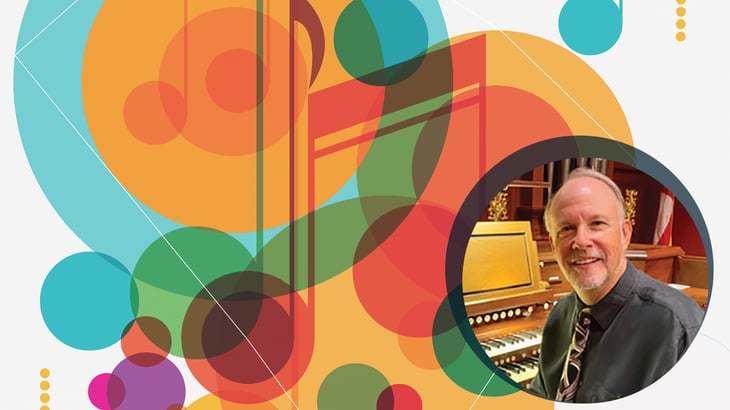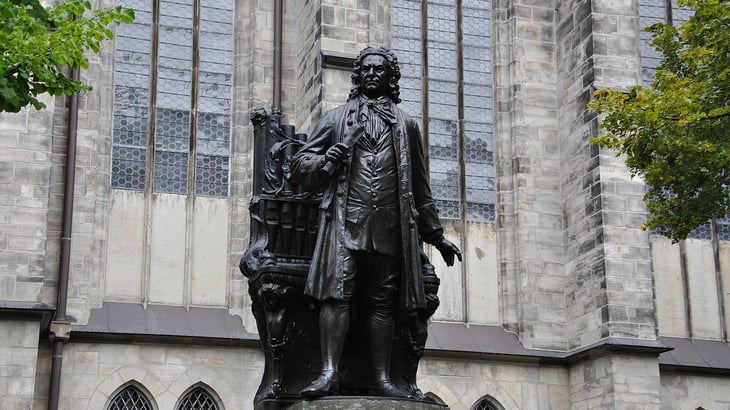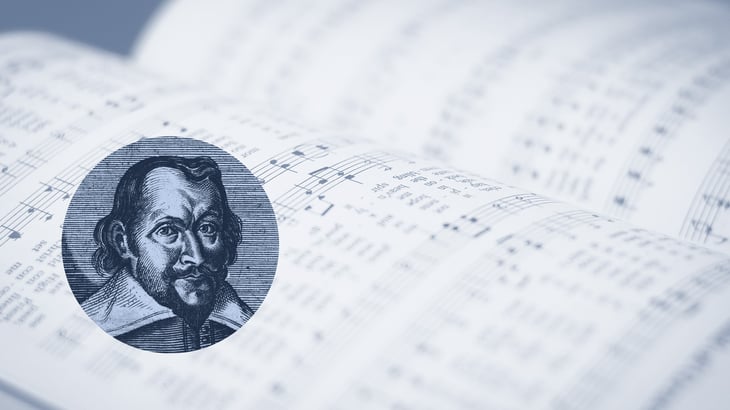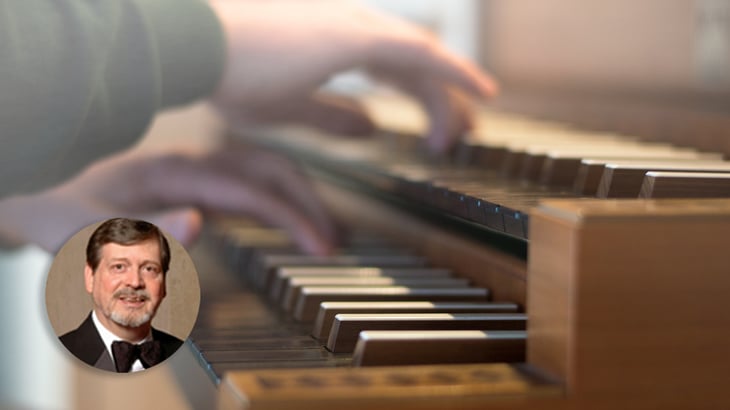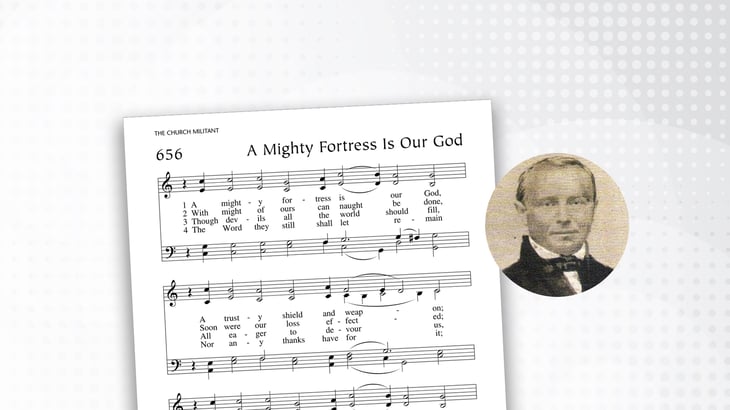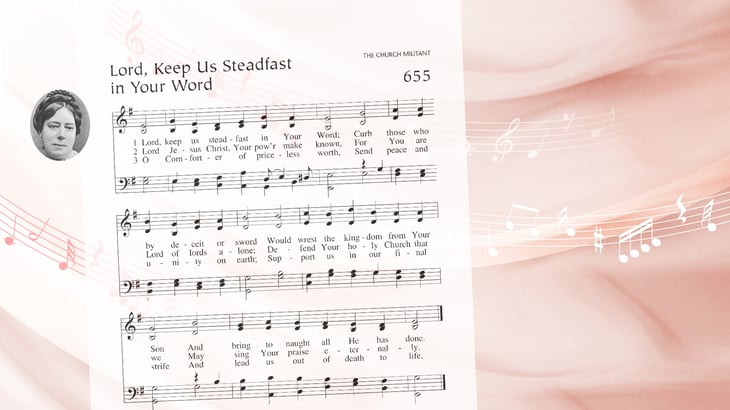Advice on Church Music Composition from John A. Behnke
Dr. John A. Behnke is a frequent handbell clinician, festival director, and organ recitalist. He enjoys composing and arranging, and he has 450+ handbell, choral, and organ compositions in print with nineteen different publishers in the United States, Germany, and Taiwan. Behnke’s relationship with Concordia Publishing House started in 1994, and he has since composed more than 200 of those pieces with CPH. In honor of his 70th birthday, we asked John to share some words of wisdom and key lessons he has learned throughout his career.
Five Lutheran Hymns of Johann Sebastian Bach
Johann Sebastian Bach is a well-known name throughout the world. Whether you are a music fanatic or not, chances are you have been touched by Bach’s music without even knowing it.
Composer of the Month: Robert Powell
Robert J. Powell (b. 1932) began writing music when he was in high school and, since then, has had more than three hundred compositions published by sacred music publishers. His works range from organ and choral compositions to handbell and instrumental pieces.
Powell currently serves as organist at Church of the Redeemer in Greenville, South Carolina. Like many churches across the country, the COVID-19 pandemic has forced his congregation to adapt their musical practices on Sunday mornings.
A Celebration of Hymn to Joy
During the Christmas season, many songs resonate with people around the world. One of those immediately recognizable hymns is “Joyful, Joyful We Adore Thee,” found in Lutheran Service Book (803). As a child, I frequently sang this in children’s choirs and even played it on my flute year after year. It’s loved by so many and a staple of winter and Christmas celebrations. Additionally, Ludwig van Beethoven’s birthday is celebrated in December (based on his Baptism date of December 17), with 2020 marking the 250th anniversary of his birth. It’s perfect timing for his most favored tune, HYMN TO JOY, to make an appearance!
Composer of the Month: Johann Crüger
Johann Crüger (1598–1662) was a seventeenth-century German Lutheran composer whose influence dwells richly in Lutheran Church music even today. He studied music across Europe as a teenager and eventually settled back in Germany, where he studied theology in Wittenberg and became cantor at St. Nicholas Church (Nikolaikirche) in Berlin. He served there for forty years until his death.
During his life as a church musician, Crüger produced dozens of Lutheran chorale tunes. Among his most famous work in today’s Church is his collaboration with German-Luther hymnwriter Paul Gerhardt in the final twenty years of Crüger’s life.
Composer of the Month: Martin Franzmann
Not unlike many American Lutherans in the upper Midwest, Martin Franzmann (1907–76) was the son of a Lutheran pastor. Born and raised in Minnesota, Franzmann continued his undergraduate and seminary education in Wisconsin and ultimately taught at Concordia Seminary in St. Louis, Missouri.
Composer of the Month: Kenneth Kosche
Dr. Kenneth T. Kosche, born in 1947, holds a DMA in choral music and served on the faculty in the music department at Concordia University Wisconsin from 1978 to 2009. In those 31 years, Kosche conducted the school’s two choirs and taught classes in composition, conducting, and choral literature.
Composer of the Month: Fridrich Layriz
Have you ever wondered why some hymns in Lutheran Service Book have more than one setting? To the untrained ear, the spacing and notes may seem almost identical, but to a seasoned musician, one tweak can make all the difference. Fridrich Layriz (pronounced LIE-ritz) supported the use of traditional rhythmic settings for hymns, and his work was influential, especially for The Lutheran Church—Missouri Synod and its music.
Composer of the Month: Kevin Hildebrand
Kevin Hildebrand is Kantor at Concordia Theological Seminary in Fort Wayne, Indiana (CTSFW), and at St. Paul’s Evangelical Lutheran Church in Fort Wayne. His work involves training future pastors at CTSFW in practice and understanding of Lutheran church music and hymnody as well as forming a confessional, congregational, and musical identity at St. Paul’s.
Hildebrand attended Concordia University Chicago for undergraduate study, and afterward, earned master’s degrees in music from the University of Michigan and theology from CTSFW. In Lutheran Service Book, Hildebrand composed the tune “Lord of Life” (552, “O Christ, Who Shared Our Mortal Life”) and wrote harmonizations for three more hymns in LSB.
Hymn Translator of the Month: Catherine Winkworth
Catherine Winkworth (1827-1878) was born the youngest of four daughters in an Anglican manufacturing family. She was never married, never formally educated, and died suddenly when she was only 50, yet her work translating hymns from German to English is indispensable in the Lutheran tradition of hymn singing today.
